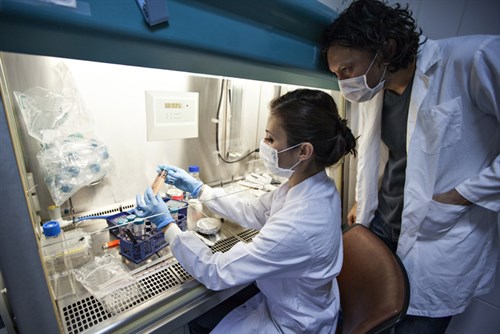 Research is a crucial part of pathology to help improve our knowledge of cancer and disease, ultimately improving the treatment and outcome for many patients. However, over recent years there has been a lack of trainee engagement in academic pathology which is concerning for the future of this vitally important aspect of the job.
Research is a crucial part of pathology to help improve our knowledge of cancer and disease, ultimately improving the treatment and outcome for many patients. However, over recent years there has been a lack of trainee engagement in academic pathology which is concerning for the future of this vitally important aspect of the job.
Below are some of the reasons why you should consider engaging with research within your training and beyond:
- Research may not suit you. You may have had some experience with it and found that it is not something that you wish to pursue. That is absolutely fine. However, an appreciation of research is still very important as you need to keep up to date with the latest developments so that you can ensure that you are assessing your samples in the correct manner etc. If you have not had any experience with research before, I strongly advise you to give it a go! Research can be fascinating and exciting and you may make the next great discovery in pathology! Researchers often set out to answer a particular hypothesis but often the results lead to the development of many other questions that need to be looked into. There are always new things to learn and with the advance of molecular pathology, the number of questions has exploded! There are plenty of opportunities for all trainees and future trainees to get involved!
- Getting involved in research is not committing yourself to a career in academic pathology. There are lots of opportunities and small projects that are available that allow you to ‘dip your toe in’ and see if you like it and think that it is worth pursuing. You never know, you might really enjoy it! But you won’t know unless you try it!

- The research in molecular pathology can make a huge different to patient outcome and treatment. New subtypes of cancer are being discovered with targetable mutations meaning that cancers that originally had a very poor prognosis now do not. Tumour samples can be collected directly from the operating table, brought back to the lab, and the tumour cells can be grown in plates or flasks. The cancer can be properly characterised to review the mutations that it contains. This means that different drugs and compounds can be tested on the growing cells to see if they are sensitive. If they are, this information can be given to the oncologists and the patient could be started on a new treatment. This is where pathology and research can make a huge difference to patient outcome in real time.
- Histopathologists also have an important role in monitoring the response to treatment. Repeat biopsies of cancers are becoming more frequent; research has an important role in monitoring the changes that have occurred in the cancer and can therefore assess whether the treatment is working or if it needs to be changed. This is a fundamentally important role for pathologists who work in the clinical trials setting – this role is going to increase in the years to come.

- Collaboration in research is key. Research cannot be performed without pathology departments working with other labs and departments across the world. Involvement in research allows you to potentially visit other countries to engage with research abroad, and also allows you to present your research at the various international conferences that are on offer each year.
- For those who want to actively engage in research, there are numerous opportunities that range from getting involved in a small research project to studying towards a PhD. As an example, the BRC Molecular Pathology Starter Programme at the Institute of Cancer Research is a 6-month post that provides you with the practical and theoretical knowledge of molecular pathology whilst engaging in a small research project. This could also potentially lead to PhD opportunities. Engagement with the Pathological Society’s Academic Network is a useful way of speaking to pathologists who are involved in research and seeing what opportunities are available. The Association of Clinical Pathologists, the Pathological Society and the BDIAP also provide funding opportunities to help with research projects. Visit the websites to see what is available!
- Time is available within your training to pursue research. ACF posts can be applied for but there are also ‘ out of programme – experience’ (OOPE) or ‘out of programme – research’ (OOPR) available within your training which will provide you with varying amounts of dedicated time to pursue research opportunities.
If you are considering a career in histopathology, or you are an existing trainee and want to pursue academic pathology, this is definitely your time to engage with it! The support and opportunities are numerous!